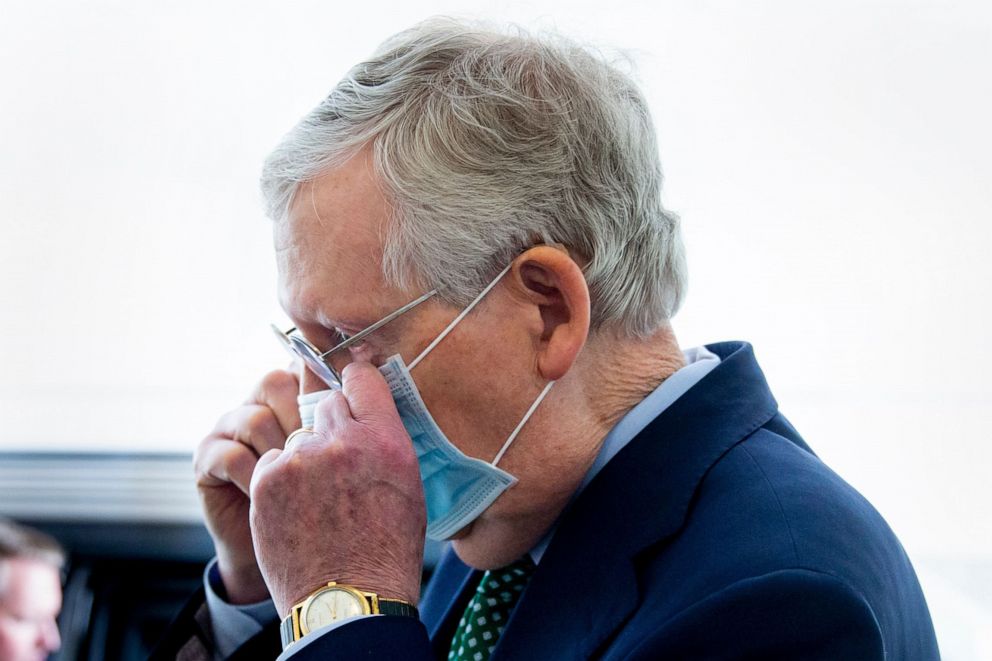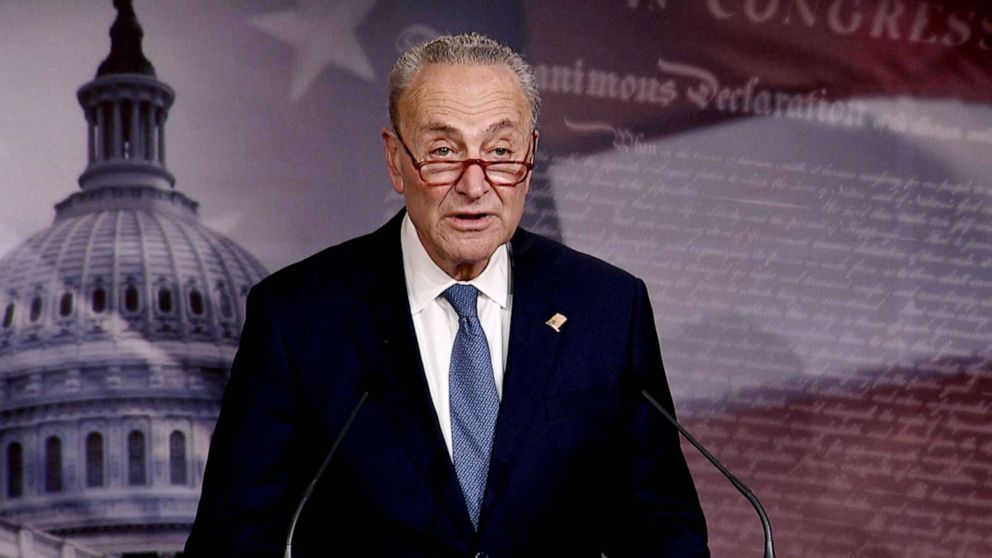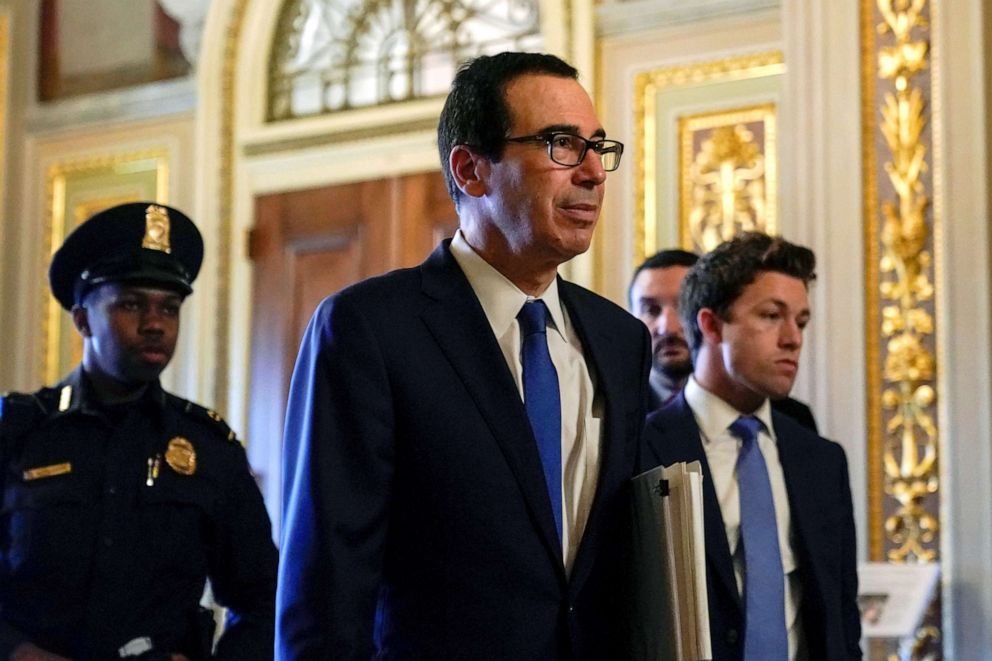National testing plan a sticking point in reaching small business aid deal
Schumer: "I believe that the president has not been focused enough on testing."
Congressional leaders and the White House are inching closer to striking a bipartisan deal that will replenish the depleted small business loan program and provide funding to hospitals struggling under the coronavirus public health crisis -- with a debate over testing emerging as one of the final areas of dispute.
Majority Leader Mitch McConnell, who was seen leaving the Capitol wearing a mask, said that a Senate vote was possible as early as Tuesday if an agreement is reached. (He recently turned 78 and previous health problems make him especially vulnerable.)

Testing supply shortages across the country have prompted Democrats to demand a national testing program to standardize the process across the country. They are pushing for a clear set of metrics to chart the country's progress in expanding testing, and to hold the administration accountable for any ongoing shortages, according to a Democratic source.
The White House has pushed back on a national plan, arguing that testing is best left up to the states, while Republicans want the process to continue as a partnership between private industry and the government.
"Thus far, I believe that the president has not been focused enough on testing,” Senate Minority Leader Chuck Schumer said Sunday during an interview with CNN.

Tune into ABC at 1 p.m. ET and ABC News Live at 4 p.m. ET every weekday for special coverage of the novel coronavirus with the full ABC News team, including the latest news, context and analysis.
Multiple sources familiar with the talks told ABC news that negotiators have agreed to provide an additional $310 billion for the Paycheck Protection Program, which provides small businesses with forgivable loans if they keep employees on payroll.
Roughly $60 billion of that amount would go towards smaller, minority, and women-owned businesses, which Democrats had been calling for, according to sources.
Another $60 billion or so would go into a disaster loan and grant program run through the Small Business Administration.
Negotiators also agreed to provide $75 billion for hospitals and $25 billion for testing, Treasury Secretary Steven Mnuchin and other sources said Sunday.

The interim relief package is expected to be north of $450 billion. A final deal is yet to be announced, but sources have said they expect the Senate could vote on the legislative package as early as Tuesday.
The House, which noticed all members of a possible vote this week, is expected to take up the relief package later this week after the Senate clears it. House members will in all likelihood have to return to the nation’s capital to vote on the package because a unanimous consent agreement is unlikely to be reached.
“We could have been done yesterday, but the Democrats continue to hold up, even though we have agreed to all the numbers,” McCarthy, R-Calif., said Monday morning on Fox News.
McCarthy blamed House Speaker Nancy Pelosi for holding up the PPP money that ran out late last week. The small business loan program initially received $350 billion in the $2 trillion coronavirus relief package that Congress passed last month.
“There’s 700,000 small businesses with applications in right now trying to keep their doors open,” he said. “Last week we watched five million people, new numbers for unemployment. How many more of Pelosi’s layoffs will we have to endure before she’ll put people before politics?”
Pelosi’s deputy chief of staff Drew Hammill responded to McCarthy’s comments on Twitter, saying it was Republicans who were holding up the money by demanding members return to Washington for a vote on the interim package.
The interim relief package is not expected to include any additional funds for local and state governments at this time, sources said. Democrats had been pushing for $150 billion more for local and state governments, but Republicans, including President Donald Trump, suggested that aid could come through in a subsequent relief package.
“We’re continuing to negotiate with the Democrats to get our great workers and small businesses all over the country taken care of,” President Donald Trump said on Sunday night. “We’re getting close to a deal.”
What to know about coronavirus:
- How it started and how to protect yourself: coronavirus explained
- What to do if you have symptoms: coronavirus symptoms
- Tracking the spread in the US and Worldwide: coronavirus map




